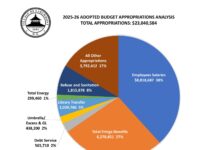
The Uyghur Forced Labor Prevention Act was passed by Congress and signed by President Joe Biden in 2021. The question now becomes how does America and the American people make sure we are not buying products made in China by Uyghur forced labor?
On June 24, The Coalition for a Prosperous America (CPA) today released a statement in response to the Forced Labor Enforcement Task Force’s (FLETF) release of its Report to Congress titled, “Strategy for the Uyghur Forced Labor Prevention Act.”
The Report acknowledges that the “PRC government engages in genocide and crimes against humanity” more than once, but everything that follows in the strategy report ensures that the PRC government is undisturbed and that importers can continue to source from China with confidence, regardless of actions by the regime there.
In March of this year, CPA submitted a comment to the FLETF expressing concern that U.S. policy would rely on “doomed-to-fail, entity-specific legal investigations.” CPA warned that “such a policy approach applied to the People’s Republic of China [would] sabotage Congress’ expectations” of the proper enforcement of the Uyghur Forced Labor Prevention Act (UFLPA).
Unfortunately, CPA’s warning is coming true.
The FLETF has adopted the absolute bare minimum policy to comply with the law. Despite the FLETF’s report acknowledging that China’s Anti-Foreign Sanctions Law pressures shippers “to defy U.S. import laws” (pg. 14), the new rebuttable presumption required by the UFLPA is only likely to apply if:
- CBP is made aware that the importer’s shipment consists of products by an entity on the UFLPA Entity List; or
- CBP is made aware that the importer’s shipment consists of products in four sectors (apparel, cotton products; silica-based products; and tomato products), and the shipment is “imported directly from Xinjiang into the United States”. (Report, pg. 29).
CPA notes that despite silica-based products being included as one of the four high-priority sectors for enforcement, the FLETF did not include any Chinese solar companies on the UFLPA Entity List, including the ones currently under investigation by the Commerce Department. These are the same Chinese manufacturers that are members of the Solar Energy Industries Association (SEIA), a trade association that was recently exposed as a front for Chinese solar manufacturers and has as members JinkoSolar, JA Solar, Trina Solar, BYD, and LONGi Solar. Four of these Chinese solar companies and SEIA members were named in an explosive academic report that was released by the Coalition to End Forced Labour in the Uyghur Region detailing the widespread use of Uyghur forced labor within the solar industry.
“This so-called Strategy Report comes in the wake of President Biden’s unprecedented action to sabotage the Commerce Department’s ongoing investigation into illegal trade activity by Chinese solar manufacturers,” said Michael Stumo, CEO of CPA. “The Biden administration giving China a pass on illegal trade activity does not provide any reassurances that this administration will aggressively block any forced labor imports at this time — despite Congress’s overwhelming and bipartisan intention when it passed UFLPA.”
CPA reiterates its call for Customs and Border Protection (CBP) to strictly adhere to the law and stringently enforce the UFLPA via targeting all categories of goods and robustly expanding the lists called for by Congress, including the UFLPA Entity List.





